When it comes to impact drivers, two brands that frequently come to mind are Ryobi and Makita. These brands have earned significant recognition in the market for their exceptional durability, impressive performance, and overall high quality. However, choosing between the two can be a daunting task, especially for those who are just starting to do home repairs or interior design and don’t know which brand to trust.
So, whether you’re a seasoned DIY enthusiast looking to upgrade your toolbox or a beginner who is trying to implement their first house renovation project, this guide will act as your trusted companion. Learn about the features of Ryobi and Makita hammer drills, explore their unique features, and uncover the pros and cons associated with each brand. With this knowledge in hand, you can confidently select the impact driver that will perfectly complement your projects and help you achieve remarkable results.
Let’s plunge deeper into our world of impact factors and embark on a journey to making informed decisions!
Why do you need impact drivers?
Impact drivers are incredibly versatile and powerful tools, specifically engineered for driving screws and tightening nuts with exceptional speed and force. These remarkable devices are widely acclaimed for their ability to effortlessly handle large screws and long bolts that would typically cause a standard drill to struggle.

Not only are impact drivers commonly utilized in construction, automotive repair, and various DIY projects, but they have also become a go-to tool for professionals and enthusiasts alike. Their compact design and higher torque output make them indispensable when it comes to tasks like building a deck, installing a fence, or putting up drywall. With an impact driver in hand, you can expect your projects to be completed quicker and more efficiently than ever before.
So, whether you’re a seasoned professional or a DIY enthusiast, embracing the power and versatility of an impact driver is a game-changer that will revolutionize your work. Don’t settle for anything less than the best when it comes to driving screws and tightening nuts – equip yourself with an impact driver and experience the difference! [1]
Advantages Of Impact Drivers
Hammer drills offer a number of significant advantages over traditional drills and similar electric tools. First, due to its high torque, it is ideal for heavy-duty work that involves screwing big fasteners or screws into solid materials. With their exceptional power, they effortlessly plow through even the toughest materials, saving you time and effort.
In addition to their sheer power, impact drivers boast a compact and lightweight design, making them incredibly easy to handle and maneuver in tight spaces. Whether you’re working in a cramped corner or an overhead position, their compact size allows for enhanced control and precision.
But that’s not all! The unique design of impact drivers also helps reduce wrist strain thanks to their minimization of kickback. This means less fatigue and discomfort, allowing you to work for longer periods without sacrificing comfort or safety.

Last but not least, the faster speed of impact drivers significantly boosts productivity for professionals, DIY enthusiasts, and homeowners alike. With their rapid rotation and quick impact action, you can complete tasks in record time, saving precious minutes and achieving impressive results.
So when it comes to powerful instruments, hammer and rotary drills are a game changer, offering superior performance, efficiency, and versatility for a wide range of applications. [1]
Ryobi Vs. Makita Impact Driver Review
Ryobi and Makita are widely recognized and respected brands in the realm of power tools, known for their exceptional quality and performance.
When it comes to Ryobi Impact Drivers, they stand out for their remarkable affordability without compromising on functionality. These impact drivers offer an impressive amount of torque, precise speed control, and a comfortable ergonomic design that ensures ease of use. Additionally, Ryobi impact drivers are renowned for their long-lasting battery life, making them an excellent choice for tackling extensive projects. Versatility is another key attribute of Ryobi impact drivers, as they can effortlessly handle a wide range of tasks, from simple home improvements to more demanding construction jobs.
On the other hand, Makita Impact Drivers are highly regarded for their robust and durable construction. These impact drivers deliver exceptional torque and speed, enabling efficient work even on the toughest materials. While Makita impact drivers may come at a slightly higher price point compared to Ryobi, many users find the investment justified by the brand’s reputation for reliability, power, and the inclusion of additional features such as LED lights and brushless motors. Makita’s compact design and utilization of advanced technology in their impact drivers cater to both professionals and DIY enthusiasts, offering precision and power in a single tool.
In conclusion, both Ryobi and Makita provide top-quality impact drivers, each with its own unique strengths. The choice between the two ultimately depends on your specific needs, budget, and preferences for particular features. If budget is a significant consideration, Ryobi offers an excellent option, while Makita is worth considering for those seeking durability and advanced features. [2]

Brand History: Ryobi Vs. Makita
Ryobi and Makita, two prominent players in the power tools industry, boast rich histories that have greatly influenced their current standing. Let’s delve deeper into their origins and the values they uphold.
Established in 1943, Ryobi Limited, a Japanese company, initially specialized in manufacturing die-cast products. However, in 1968, they ventured into the world of power tools, aiming to provide a diverse range of innovative tools tailored to the needs of cost-conscious pro-sumers. Ryobi quickly gained recognition for their ability to produce power tools with professional-grade features at an affordable price point. This value proposition has made them immensely popular among homeowners, hobbyists, and professionals who prioritize value for money.
On the other hand, Makita Corporation, another powerhouse in the Japanese market, began its journey in 1915 as an electric repair company. It wasn’t until 1958 that they introduced their first power tool, an electric planer, which marked the beginning of their dominance in the industry. Makita’s commitment to quality and durability has earned them a stellar reputation, especially in demanding work conditions. Their tools are known to excel in performance and longevity, making them a preferred choice for professionals in heavy-duty industries. While their products may come at a higher price, they are viewed as a long-term investment by those who require top-notch tools that can withstand rigorous usage.
In essence, the distinct histories of both Ryobi and Makita have significantly influenced their approaches to power tools. Ryobi’s focus on affordability, coupled with professional-level features, has allowed them to cater to a wide customer base seeking reliable tools without breaking the bank. On the other hand, Makita’s emphasis on durability, advanced features, and high performance aligns with the needs of professionals who require tools that can endure challenging work environments.
By understanding the foundations upon which these brands have been built, consumers can make informed decisions when selecting power tools that best suit their needs, preferences, and budget.
Quality And Professional
When considering the quality and professionalism of Ryobi and Makita impact drivers, both brands firmly hold their ground.

Ryobi, known for its budget-friendly yet high-quality tools, maintains a steady reputation. Their impact drivers are not only robust and reliable but also match the performance of higher-priced professional tools. Ryobi’s commitment to quality is evident in their use of durable materials, rigorous testing, and user-friendly designs. These factors make their tools an excellent choice for DIY enthusiasts and homeowners who seek reliable, cost-effective tools for occasional use.
On the other hand, Makita is synonymous with professional-grade quality. Their impact drivers are constructed with top-notch materials and cutting-edge technology, ensuring durability and long-lasting performance. Makita’s tools are specifically designed to withstand the rigors of heavy-duty professional use, making them a favorite among contractors and tradespeople. While their tools come with a higher price tag, the investment is often justified by the tool’s longevity, power, and efficiency.
In conclusion, both Ryobi and Makita are committed to quality and professionalism in their respective ways. Ryobi offers affordability without compromising on quality, making it a great choice for occasional users and DIYers. Makita, in contrast, offers professional-grade tools with superior durability and performance, making it a wise investment for professionals and serious hobbyists. With these options available, users can confidently choose the brand that best suits their specific needs and preferences.
Battery Life And Compatibility
When it comes to battery life and compatibility, both Ryobi and Makita have their unique offerings that cater to the needs of different users.
Ryobi’s ONE+ system is undoubtedly a standout feature. All Ryobi cordless tools, including their impact drivers, utilize the ONE+ battery system. This means that a single Ryobi battery is not only compatible with any of their power tools, but it also allows for seamless interchangeability. This level of battery standardization not only provides cost-effectiveness but also adds unparalleled convenience for users who own multiple Ryobi tools. Furthermore, Ryobi batteries are known for their impressive runtime, enabling users to undertake lengthy tasks without the inconvenience of frequent battery changes.

On the other hand, Makita adopts the LXT battery platform for their cordless tools, further expanding their compatibility across the Makita cordless range. Similar to Ryobi’s ONE+ system, the LXT battery offers remarkable compatibility across various Makita tools. However, Makita’s battery technology sets itself apart with its exceptional fast charge times. In most cases, Makita batteries reach full capacity in less than an hour. This means less downtime waiting for batteries to charge, which is particularly advantageous in professional settings where time is of the essence.
In conclusion, both Ryobi and Makita excel in providing extensive battery compatibility across their range of tools. While Ryobi impresses with its remarkable runtime, allowing for longer periods of use, Makita shines with its fast charge times, minimizing charging intervals. Your choice between the two may depend on whether you prioritize longevity of use (Ryobi) or reduced charging intervals (Makita), ensuring that you have the perfect battery solution for your specific needs.
Product Lines
Ryobi and Makita are both renowned for their extensive product lines, offering consumers an impressive array of options to choose from.
Ryobi’s product line extends well beyond impact drivers, encompassing a wide range of power tools designed to meet diverse needs. From drills and saws to sanders and grinders, Ryobi has you covered. They even provide a comprehensive collection of outdoor power equipment, including lawn mowers, leaf blowers, and chainsaws, ensuring you have the right tools for all your outdoor projects. What’s more, all of these tools are part of the ONE+ system, meaning they utilize the same battery for maximum convenience and flexibility.
In the same vein, Makita boasts a diverse product catalogue that caters to professionals and DIY enthusiasts alike. Their lineup not only includes impact drivers but also a wide variety of professional-grade power tools, such as circular saws, angle grinders, hammer drills, and more. Additionally, Makita offers an impressive range of cordless outdoor power equipment, including hedge trimmers, string trimmers, and leaf blowers. What sets Makita apart is their LXT battery platform, which powers all their cordless tools, providing consistent and reliable performance.
In conclusion, both Ryobi and Makita excel in offering comprehensive product lines that cater to a variety of needs. Whether you are a professional seeking high-performance tools for demanding projects or a homeowner in search of reliable equipment for your DIY endeavors, both brands are sure to have a product that perfectly suits your requirements. With Ryobi and Makita, you can trust that you’ll have the right tools to get the job done efficiently and effectively.
Cost of Tools
When it comes to cost, the pricing strategies of Ryobi and Makita reflect their respective brand positioning and target markets.

Ryobi, known for its commitment to affordability, offers its impact drivers and other power tools at a relatively lower price point. The brand takes pride in ensuring their power tools deliver professional-grade features and performance without putting too much strain on the pocketbook. With a focus on cost-efficiency, Ryobi has become an attractive option for homeowners, hobbyists, and DIY enthusiasts who demand high quality but are also budget-conscious. Whether it’s tackling small home improvement projects or taking on DIY crafts, Ryobi provides a range of affordable tools that meet the needs of cost-conscious consumers.
On the other end of the spectrum, Makita’s tools typically carry a hefty price tag. This premium pricing strategy is reflective of their focus on producing high-end, professional-grade tools designed to endure the most demanding work conditions. Makita’s tools are built to last, delivering exceptional durability, power, and performance that professionals and serious hobbyists rely on. While the upfront cost of Makita tools may be higher, the long-term value they provide often justifies the investment for those who require robust tools designed for heavy-duty work. From construction sites to woodworking workshops, Makita tools are trusted by professionals who prioritize reliability and performance.
Recommendation
It’s evident that both Ryobi and Makita have distinct strengths that cater to various types of users. For homeowners, DIY enthusiasts, and hobbyists who value good quality tools for occasional use while being mindful of their budget, Ryobi offers a compelling option. Its impact drivers not only deliver reliable performance but also come with the convenience of the ONE+ battery system, providing impressive runtime and cost-effectiveness.
On the other hand, Makita excels as a choice for professionals and serious hobbyists who require tools for heavy-duty, frequent use. The high-end and robust construction of their impact drivers, combined with the fast-charge times of the LXT battery platform, justifies the slightly higher price tag.
Therefore, it is highly recommended that potential buyers carefully assess their specific needs, frequency of tool usage, and budget before making a decision between Ryobi and Makita. Both brands are dedicated to providing quality and efficiency, but their tools serve different purposes and are priced accordingly. Taking the time to consider these factors will ensure a well-informed choice that meets individual requirements and delivers long-term satisfaction. [3]
FAQ
Which is better: Makita or Ryobi tools?
Deciding between Makita and Ryobi tools depends on individual needs, frequency of use, and budget. Ryobi tools are cost-effective and ideal for occasional use by homeowners, DIY enthusiasts, and hobbyists. They offer professional-grade features at an affordable price.
On the other hand, professionals and serious hobbyists requiring heavy-duty, regular use may appreciate Makita’s robust, high-end tools. The higher price is justified by durability, power, performance, and fast charging times.
Both Makita and Ryobi make high-quality tools for different user requirements. The “better” brand depends on your specific needs and budget.
Does Makita make the best impact driver?
Whether Makita makes the best impact driver is subjective and depends on user needs. Makita’s impact drivers excel in build quality, power, and performance, making them among the best on the market. Designed to withstand tough work conditions with fast charging times, they are ideal for heavy-duty use. However, their higher price may not suit budget-conscious consumers or occasional users. For them, a brand like Ryobi might be a better fit. Ultimately, the “best” impact driver is the one that meets your specific requirements and budget.
What brand is comparable to Ryobi?
When comparing brands to Ryobi in terms of pricing, product range, and target audience, Black+Decker often comes to mind. Like Ryobi, Black+Decker provides quality power tools at an affordable price, making them popular among homeowners and DIY enthusiasts. They also focus on innovation and convenience, offering cordless tools powered by a common battery platform. Black+Decker’s 20V MAX system, like Ryobi’s ONE+ system, allows for seamless interchangeability of batteries among all their tools, enhancing user convenience and cost-effectiveness. Therefore, Black+Decker is a viable alternative to Ryobi for budget-friendly, quality power tools.
What is the best impact driver for a Ryobi?
When it comes to selecting the best Ryobi impact driver, the Ryobi P238 18V One+ Brushless Cordless Impact Driver stands out. This versatile tool is part of Ryobi’s ONE+ system, powered by any 18V battery. It offers a powerful motor with up to 2,000 Inch-Pounds of torque and a speed of up to 3,100 RPM for various drilling and driving tasks. The brushless motor ensures longer run time, tool life, and increased power. With a tri-beam LED light to eliminate shadows, it’s an excellent choice for professionals and DIY enthusiasts alike.
Can pros use Ryobi?
Professionals can use Ryobi tools. While Ryobi is often associated with homeowners and DIY enthusiasts due to its affordability and user-friendly design, many Ryobi tools, like the Ryobi P238 18V One+ Brushless 1/4 2,000 Inch-Pound, 3,100 RPM Cordless Impact Driver, are powerful and durable enough for professional use. Tool suitability depends on the tasks’ nature and frequency. For lighter or less frequent use, Ryobi tools work well for professionals. However, for heavy-duty, regular use under tougher conditions, premium brands like Makita may offer more value. The choice of tools depends on specific requirements and budget constraints.
Which is better, a Makita or Dewalt for an impact driver?
Comparing Makita and Dewalt impact drivers is not straightforward, as it depends on user preferences, requirements, and budget. Makita is known for high-quality and powerful impact drivers, popular among professionals for heavy-duty use. Their robust construction and quick charge times make them worth the higher price. Dewalt also has a strong reputation for solid build, performance, and durability. Their impact drivers offer power, speed, and comfort, with features like 3-speed settings and LED work lights. Both brands offer reliable options, so the best choice depends on specific needs and budget. Makita prioritizes durability and fast charging, while Dewalt focuses on power, speed, and comfort.
Useful Video: Makita vs Ryobi (Impact Drivers)
Conclusion
Choosing between Ryobi and Makita, or indeed any other brands such as Dewalt or Black+Decker, ultimately hinges upon the specific needs, preferences, and budget of the user. Ryobi offers affordability and user-friendly design, making it an excellent choice for homeowners, DIY enthusiasts, and professionals with lighter or less frequent tasks. Makita, on the other hand, stands out for its robust build quality, power, and performance, catering to professionals engaged in regular, heavy-duty use. Likewise, Dewalt offers high performance, comfort, and power, while Black+Decker provides a variety of budget-friendly, quality power tools. Thus, the ‘better’ brand is subjective and should align with your unique requirements and budget. Remember, the best tool is the one that does what you need it to do, at a price point you’re comfortable with, and lasts for a reasonable amount of time.
References
- https://www.drillanddriver.com/ryobi-vs-makita-impact-driver/
- https://www.thesawguy.com/makita-vs-ryobi/
- https://housegrail.com/makita-vs-ryobi/


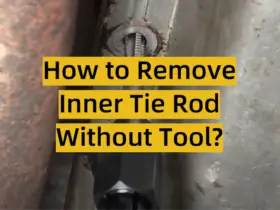
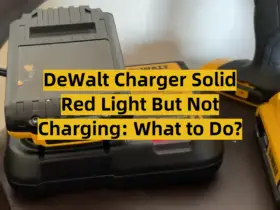
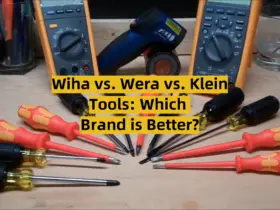
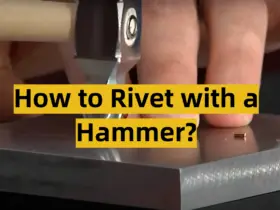

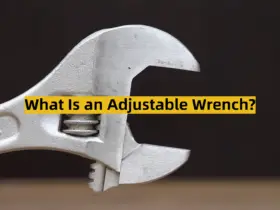
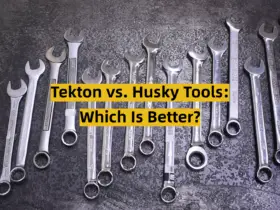
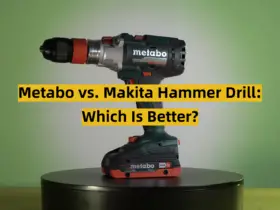
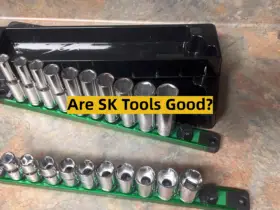
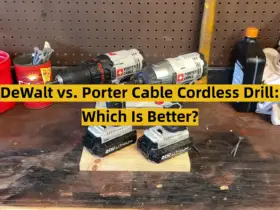

Leave a Reply